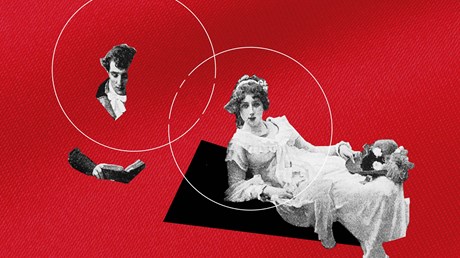Percy Shelley’s 19th-century attacks on marriage, monogamy, and Christianity foreshadowed progressive attitudes today.

Percy Bysshe Shelley, a leading figure in the 19th-century English Romantic movement, once described poets like himself as “the unacknowledged legislators of the world.” And indeed, despite living a comparatively short life (he died before age 30), his influence has endured to the present day, most notably in his emphasis on sex as the central element of individual authenticity.
Shelley, together with contemporaries like the poet William Blake, was known for his attacks on organized Christianity and his understanding that sexual liberation is central to political liberation. For Shelley, as for many in our own day, these concerns are closely linked because one of the most obvious ways religion historically exerted its power was through the policing of sexual behavior and sexual relationships.
To better understand the roots of the sexual revolution gripping the contemporary West, it pays to consider an era well before the 1960s, when many of its “unacknowledged legislators,” like Shelley, were preparing the ground for the upheavals to come.
‘The most odious of all monopolies’
Shelley’s disdain for religion, or, more specifically, Christianity and Judaism, is evident from his earliest writings, indeed, from the moment when, as an undergraduate, he and his friend Thomas Jefferson Hogg authored the pamphlet The Necessity of Atheism and were expelled from Oxford for their pains. In his early poem Queen Mab, the fairy guide launches a powerful attack on the Jews as they howl “hideous praises to their Demon-God.”
For Shelley, religion is a means of manipulation by which the powerful keep others subjugated. God himself is the very prototype of human tyranny, ...
from Christianity Today Magazine
Umn ministry


.gif)

.gif)
.gif)
